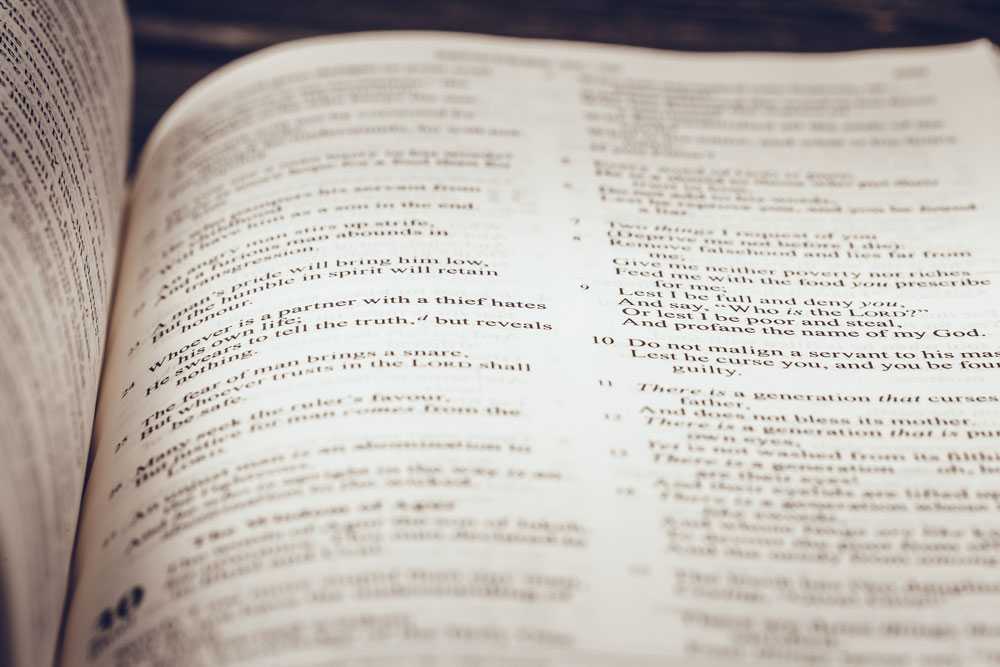ANSWER:
God gave the Jews the responsibility for the preservation of God’s Calendar. So why is it that God’s Church does not follow the Jews in every point? Why do the Jews hold their Passover a day later than the Passover observed by Moses, Nehemiah, and Jesus Christ? How and when did this change come about?
In Romans 3:2 the apostle Paul acknowledged, under God’s inspiration, that the Jews were responsible for the oracles of God. The expression “oracles of God” was a common Jewish term of the first century which designated “The Holy Scriptures” – our Old Testament. These Scriptures noted the seven annual Holy Days which Israel was to keep (Leviticus 23). These Holy Days, (except for Pentecost), were to be observed on set calendar dates each year. Without an official calendar, there could be no Holy Day observances! So correct calendar computations were given to the custodians of the Scriptures in order that all the oracles of God could be kept by those entrusted with the oracles of God.
So the Jews (specifically the priests) were responsible for preserving t he Old Testament Scriptures and the calendar (which was necessary in correctly performing the Festivals). The certainty of this is found in the New Testament. Christ and the apostles always utilized the official Jewish day, week, month and year. The early Church also acknowledged the Jewish custodianship over the calendar as well as the Old Testament Scriptures.
While the Jews had the responsibility for preserving the correct calendar, the interpretation behind the calendar days was not to be determined by them. Only God retains the right to tell us what dates on the calendar to keep His festivals! No man has that right. And it is God who tells us to observe the Passover on the evening of Nisan 14 (Leviticus 23:5).
This is the time Christ kept it. But some of the Jews in the first century observed the evening of the fifteenth. Even though the correct calendar was utilized by the Jews, different dates on that calendar were used for Passover. Scripture shows that Christ and His disciples kept the Passover on the evening before the crucifixion (Luke 22:13-15), but the next day, some of the Jews refused to come into the judgment hall lest they be disqualified from observing the Pharisee Passover which occurred on the following evening (John 18:28). This shows that Christ observed Nissan 14, as the Old Testament commanded, but the Pharisees observed Nisan 15. The same practice of keeping Nisan 15 instead of the date commanded by God is still done by all Jews today!
So why don’t the Jews keep the Passover when Christ did? God tells us, in the clearest language, that the Passover is to be observed on the evening of Nisan 14. Nowhere in the Bible does it state otherwise. But the Jews keep Nisan 15. Where did such practice come from?
The answer is found in the history of the Jews in the third century before Christ. From 301 B.C. to 198 B.C., the Palestinian Jews came under the control of Egyptians. These Gentiles imposed their philosophies and religious beliefs upon the Jews in a big way!
Dr. Lanterbach, one of Judaism’s greatest historians, admits that this period was one of religious anarchy among the Jews of Palestine (Rabbinic Essays, page. 200). They accepted, on a very large scale, many outright Egyptian customs. For example, Herodotus who visited Egypt in the fifth century before Christ, reported that the Egyptians would only drink out of pots and pans which had been scoured every day. They would religiously bathe themselves twice each day – they shunned all foreigners, especially Greeks, and would destroy any vessel or utensil which had been touched by a Greek. Such laws were adopted by the thousands by the Egyptians, said Herodotus (Book II, pp. 37-41).
Prior to the Egyptian domination of Palestine, the Jews possessed none of these absurd customs, but after that period of religious anarchy, the Jews began practicing with utmost vigor, those same Egyptian laws (see Matthew 15:2; Mark 7:3-8).
It can be shown that prior to this Egyptian domination, the Jews always kept the Passover on Nisan 14. Notice especially Ezra 6:19-22. Here it shows Nisan 14 as Passover and Nisan 15 as the first day of Unleavened Bread (which it is) – not Passover day. But, after the Egyptian period, the Jews began to observe Nisan 15 for Passover. Why?
The answer again is found in Egyptian customs. The Egyptian day customarily commenced with sunrise (Wilkinson, Vol. II, p. 368). God’s day, however, begins at sunset (Leviticus 23:32). This is where Passover reckoning by the Jews jumped the track.
While the Egyptians allowed the Jews to retain their ancient calendar, there was a change made in the beginning of the day – it became common to begin the day “at sunrise.” This custom was adopted, and persisted among the Jews even down to New Testament times (see The Jewish Quarterly Review, April, 1946; also see The Expository Times, June 1948, pp. 250, 251).
With the Nisan 14 supposedly beginning at sunrise, that puts what God calls the evening of Nisan 15 as still being on Nisan 14. This is where the problem arises. Even later on, when the Jews finally got back to an “evening to evening” reckoning for the day, they refused to abandon what had become the traditional way of observing Passover. The principle, “What was good for my fathers, is good enough for me,” was too strong for the Jews to leave it. So, today, they are still one day out of phase with God.
